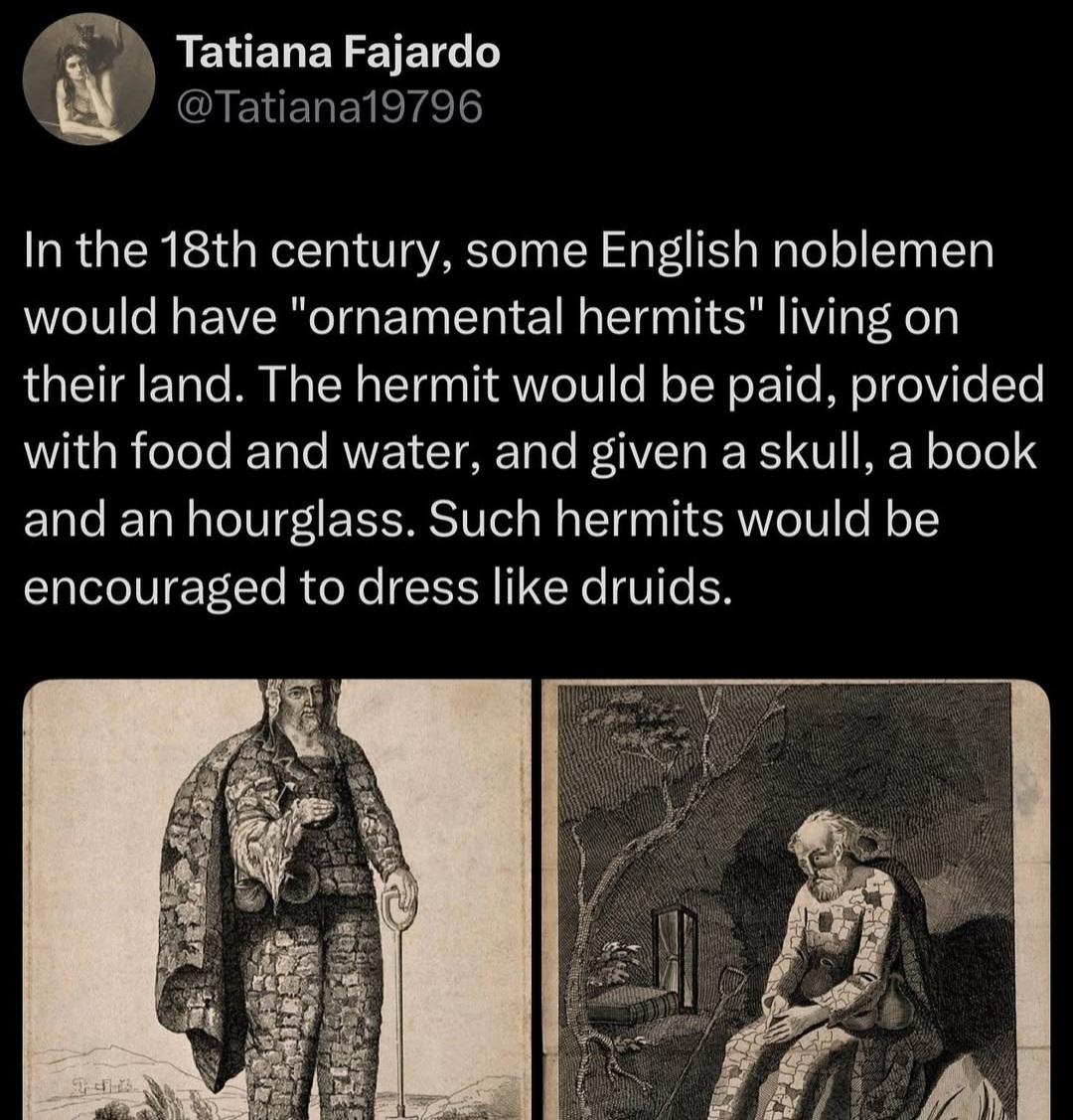this post was submitted on 21 Jun 2025
1 points (100.0% liked)
A Comm for Historymemes
2985 readers
19 users here now
A place to share history memes!
Rules:
-
No sexism, racism, homophobia, transphobia, assorted bigotry, etc.
-
No fascism, atrocity denial, etc.
-
Tag NSFW pics as NSFW.
-
Follow all Lemmy.world rules.
Banner courtesy of @[email protected]
founded 2 years ago
MODERATORS
you are viewing a single comment's thread
view the rest of the comments
view the rest of the comments

https://en.wikipedia.org/wiki/Garden_hermit
For more info
Nice
It developed into groundskeeping professions, essentially. Estates built in the 19th century commonly would have a groundskeepers house. They've long been demolished or since subdivided into their own properties but they exist(ed) even in west coast USA.
According to the article, they were not there as groundkeeper or landscaper or anything practical lol. Even funnier, the earlier trend seems to have been to create an impression of someone living in their garden (like a garden gnome) before they actually went on and hired a real human being as accessoire for their garden. In that way I can totally see rich people one upping each other with their new 'toy'.
The concept remained the same for the landowner: the person on their land was a demonstration of their property.